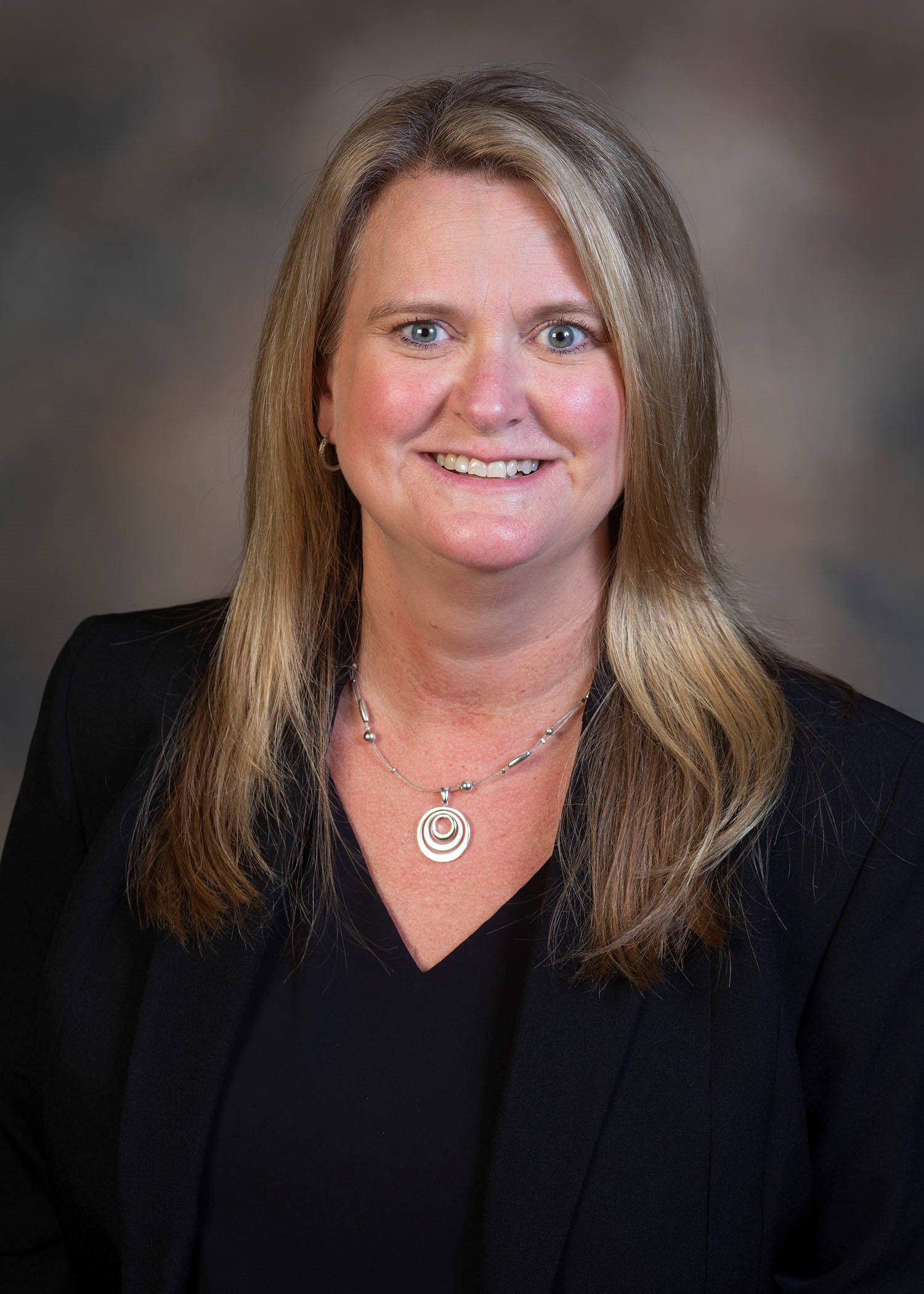Marcie Lafido, ’93, M.S. ’00, Named Associate VP, CNO at Elmhurst Hospital
By Eva Richards
 Marcie Lafido looks forward to making a difference in her role at Elmhurst Hospital.
Marcie Lafido looks forward to making a difference in her role at Elmhurst Hospital.When Marcie Lafido, ’93, M.S. ’00, was growing up in Naperville, Illinois, she did not think she would grow up to be a nurse. It was not until she was in a car accident when she was a sophomore in high school that the nursing world started to make sense to her.
“I fractured my femur and ended up hospitalized for two weeks,” she said. “I used crutches for several months, missed a month of school and had multiple surgeries throughout the following year.”
That harrowing experience and the helpful nursing care that followed gave Lafido purpose going forward.
“Once I knew I wanted to be a nurse, I looked for schools with strong nursing programs,” she said. “I only applied to two schools—NIU and University of Iowa and was admitted to both. I ultimately decided I wanted to stay closer to home, so NIU it was!”
Lafido credits her time at NIU with teaching her valuable nursing skills, as well as building important relationships.
“I have the most wonderful memories of my time at NIU,” she said. “I loved the separate nursing school location, as it allowed us all to really bond and support each other. I remain in touch with a few of my nursing peers still today. I feel pride and love when I think about those days at NIU, or when I connect with my best girlfriend who was a pot-luck suitemate my senior year.”
Lafido attended NIU for both her bachelor's and master's degrees in nursing, along with her clinical nurse specialist degree.
“NIU has a fantastic nursing program and the support given to the students from advisors, upperclassmen and teachers was stellar,” Lafido said. “I never went a semester without face-to-face interaction with my advisor, and she really helped me understand what I needed to graduate and what experiences I wanted to have while I was there. The same was true of the graduate program and the support I had on that journey. I think the classroom instruction, coupled with the strong clinical experiences, did a lot to prepare me for being a new RN as well as an advanced practice nurse after the graduate program.”
After earning her undergraduate degree, Lafido was fortunate enough to be offered a job within the unit where she spent her last clinical rotation during her undergraduate degree, which really helped with her transition to nursing in the real-world. She worked bedside in oncology nursing at Swedish American Hospital in Rockford, Illinois.
“I already had exposure to the unit and staff,” she said. “I also loved the experience in the skills lab at the School of Nursing and even worked in the lab for a short period of time during my master’s program.”
Next, Lafido moved back to the Chicago suburbs when she was hired on the cardiovascular unit at Elmhurst Hospital in Elmhurst, Illinois, in 1995.
“I fell in love with cardiac nursing,” she said. “I served as a staff nurse and clinical coordinator of that unit for several years, and then as an APN with the cardiologists for 14 years.”
Lafido noted that she was lucky enough to be involved in the opening of the new Elmhurst Hospital in 2011 and worked as an APN on the day they moved all patients into the new hospital.
In 2014, she decided to go back to management, starting as a manager of clinical integration and working her way up to her most recent role as an associate VP, chief nursing office (CNO) at Elmhurst Hospital.
Ultimately, as the CNO, Lafido is responsible for strategic planning at the executive level for the hospital’s nursing practice house-wide, providing leadership over the professional nursing practice environment, overseeing the delivery of patient care—ensuring quality, safety, and evidence-based practices, as well accountability for professional nursing development and patient care outcomes.
“I spend my days revising my current relationships with leaders to understand what they need from me as the CNO, rounding on patient care areas and establishing foundational relationships with the front-line nursing and patient care teams,” she said. “I need to understand the needs of my direct report leaders and their leadership teams, so I am soaking up all of the information coming to me daily as I continue to learn and grow. I am extremely lucky to have the CNO at Edward Hospital and the Chief Nurse executive at EEH as role models and mentors as I navigate this new role.”
Lafido is looking forward to making a connection with the staff and having them see her as someone they can approach with issues and concerns—someone who will be there to help them.
“I hope to continue to promote the wonderful culture of caring and compassion that exists at Elmhurst Hospital,” she said. “I want to foster growth in nursing and patient care teams to continue to provide the best possible care for our patients and each other.”
She also hopes to help her staff continue to recover from the trauma and uncertainty of the past 18 months during the COVID-19 pandemic and come out stronger and more resilient than ever. She looks forward to growing and mentoring strong leaders within the organization.
“The environment and the people I work with are the top reason I love what I do and get up to do it every single day,” Lafido said. “Elmhurst Hospital is a large team made up of many smaller teams that all look out for each other and have each other’s backs. It is an amazing place to work, and I could not be happier than to get to continue my career here.”
When Lafido left bedside nursing to go back into leadership, it was the hardest decision she ever made in her career, but the choice has proven to be a good fit for her.
“I was so worried that I would not be able to make the same difference in the lives of my patients in this kind of work, but I have learned over the years and am thrilled to say that I can still make a difference," Lafido said. "Being involved in process changes, evidence-based guideline revisions, policy updates, ensuring appropriate staffing levels and being here to support the staff at all levels. These are just a few of the ways I can still impact patient care and outcomes. It is just as rewarding for me to see these important successes.”
